11 Oct2019
By AACTE
The American Association of Colleges for Teacher Education (AACTE) celebrates its 20 member institutions that received the 2019 Teacher Quality Partnership (TQP) grants from the U.S. Department of Education announced last week. With grants totaling more than $20 million, the TQP is the only federal initiative dedicated to strengthening educator preparation at institutions of higher education.
“AACTE celebrates all of the grant recipients, especially our 20 AACTE member institutions, because our members work year-round to advocate for continual funding for this critical initiative,” said Lynn M. Gangone, AACTE president and CEO. “With so much volatility on Capitol Hill, we view the consensus to support teacher preparation programs as a huge victory. TQP grants empower our members to extend and elevate their innovative and exemplary work.”
11 Oct2019
By Joanna Norris
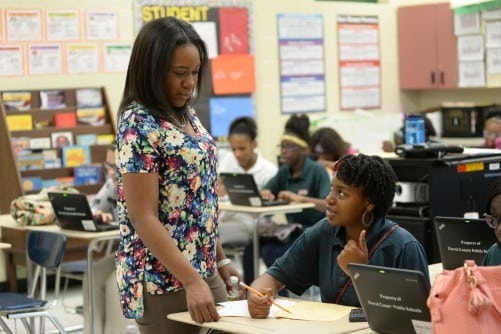
The University of North Florida’s College of Education and Human Services was awarded a $1.6 million Teacher Quality Partnership (TQP) grant from the U.S. Department of Education to support innovative teacher preparation models that prepare prospective and new teachers to serve students in high-need schools.
The Department of Education made 31 awards totaling $20.1 million, and UNF was the only university in Florida to receive the funding. Recipients include more than two dozen school districts, institutions of higher education, and nonprofit organizations.
“We know a great teacher is the foundation of a great education,” said U.S. Secretary of Education Betsy DeVos. “By ensuring teachers are able to continually grow and improve in ways that excite and challenge them, we can help students succeed. These grants will help foster meaningful professional development opportunities, especially in the often-lacking areas of STEM and computer science-focused training.”
11 Oct2019
By Annemarie Mountz

A team of Penn State College of Education faculty led by P. Karen Murphy has won a five-year, $1.98 million grant from the National Science Foundation (NSF) to improve the preparation of undergraduate preservice elementary teachers.
Murphy, distinguished professor of education (educational psychology), is the principal investigator (PI) on the study. She is joined by co-PIs Gwendolyn Lloyd, the Henry J. Hermanowicz Professor of Teacher Education and professor of education (mathematics education); Amy Voss Farris, assistant professor of education (science education); and Rachel Wolkenhauer, assistant professor of education (curriculum and supervision).
With support from the NSF Improving Undergraduate STEM Education Program: Education and Human Resources, this project aims to serve the national interest by investigating whether teaching preservice elementary teachers how to use discussion-based pedagogy improves the quality of mathematics instruction in their classrooms. Specifically, the researchers will adapt Quality Talk (QT), a small-group, teacher-facilitated discussion approach, for use by teacher educators in STEM methods courses and classroom-based field experiences for future elementary teachers.
07 Oct2019
By Deborah Koolbeck
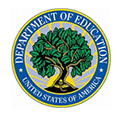 The U.S. Department of Education announced its new Teacher Quality Partnership (TQP), grant recipients, funding 31 projects with $20.1 million dollars. TQP is the only federal initiative dedicated to strengthening and transforming educator preparation at institutions of higher education. Of the 31 grantees, 20 are AACTE members.
The U.S. Department of Education announced its new Teacher Quality Partnership (TQP), grant recipients, funding 31 projects with $20.1 million dollars. TQP is the only federal initiative dedicated to strengthening and transforming educator preparation at institutions of higher education. Of the 31 grantees, 20 are AACTE members.
The grant program addresses the teacher shortage found across the nation by preparing teachers in high needs fields to teach in high need schools. Grantees focus on either the undergraduate or graduate level, extending clinical practice to a full year or creating a residency program. Graduates receive at least 2 years of induction, which research shows supports teachers in remaining in the classroom after their novice years. In fact, a majority of TQP graduates remain in the profession well after the provided induction and drive transformation throughout their schools and even the school district itself.
For this grant competition, priority was given to those applicants who designed programs to prepare computer science teachers as well as the STEM fields overall, and to those programs taking place in a Qualified Opportunity Zone as designated by the Internal Revenue Service.
AACTE annually advocates for TQP funding through the congressional appropriations process, and supports augmenting the capacity and reach of this grant.
The list of awardees can be found in the Department’s press release.
07 Oct2019
By Danny Carlson
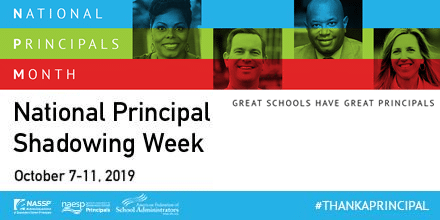
October is National Principals Month —a month to honor our nation’s principals and the important work they do leading schools. Led by the National Association of Elementary School Principals (NAESP), the National Association of Secondary School Principals (NASSP), and the American Federation of School Administrators (AFSA), this annual celebration recognizes our nation’s principals for their tireless dedication to their students and the schools they serve.
To effectively lead a school, today’s principal must fulfill the role of instructional leader and create the learning conditions to support teaching and learning. To do this, principals are in classrooms, observing instruction, engaging with teachers in the nuts-and-bolts of leading learning communities, and connecting teachers with professional learning opportunities. Thus, principals are now more than ever multipliers of effective teaching and possess an enormous capacity to impact student achievement.
Simply put: You can’t have a great school without a great principal. Whether it’s supporting their teachers, ensuring students have access to nutritious meals, or making parents and families feel engaged and welcome their child’s school, principals make it happen.
Despite the many rewarding aspects of the principalship and its importance in improving teaching quality and boosting student outcomes,
03 Oct2019
By Leslie-Hull-Ryde
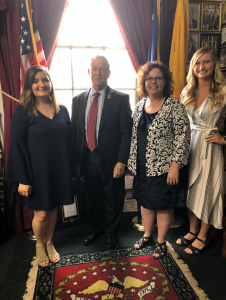
Students and faculty from the University of South Carolina Aiken headed to Washington to meet with legislators and learn about trends in education policy from leaders in the field, all as part of the American Association of Colleges for Teacher Education’s annual Washington Week.
“The primary goal of the trip was to collaborate with the American Association of Colleges for Teacher Education and engage with staffs of the South Carolina representatives and senators,” said Tiffany Zorn, a USC Aiken education major.
“This experience permitted us to expound upon particular bills that aid with teacher preparation as well as [champion] the necessity to continue funding the Teach Grant and reevaluate the data gathered within the teaching profession. Without voices to be advocates, our teachers’ stories would never be heard, and no progress would ever truly be made.”
AACTE is considered “the leading voice on educator preparation,” according to its website, which also states that AACTE represents more than 800 postsecondary institutions with educator preparation programs, like USC Aiken.
03 Oct2019
By National Education Policy Center

In 2011, renowned academic, lecturer, and author Robin DiAngelo coined the term “white fragility” in an academic article, which influenced the national dialogue on race. DiAngelo will take center stage as the opening keynote speaker at the 2020 AACTE Annual Meeting on Friday, February 28 in Atlanta, GA.
The following article originally appeared in the National Education Policy Center newsletter and is reprinted with permission.
Public school enrollment has been majority “minority” since 2014. Yet roughly 80% of teachers are White. Although it’s not easy to get data on the racial makeup of local school boards, a 2010 survey suggests about 80% are White. State legislators, who typically call the shots on K-12 policy and funding, are also about 8 % White.
So how are educators and policymakers dealing with this glaring gap between the demographics of the people who implement and make education policy and the students who live its results? How are they handling the even bigger chasm between the societal and educational opportunities offered to White students versus students of color?
In many cases, they’re not.
03 Oct2019
By Paul Floeckher
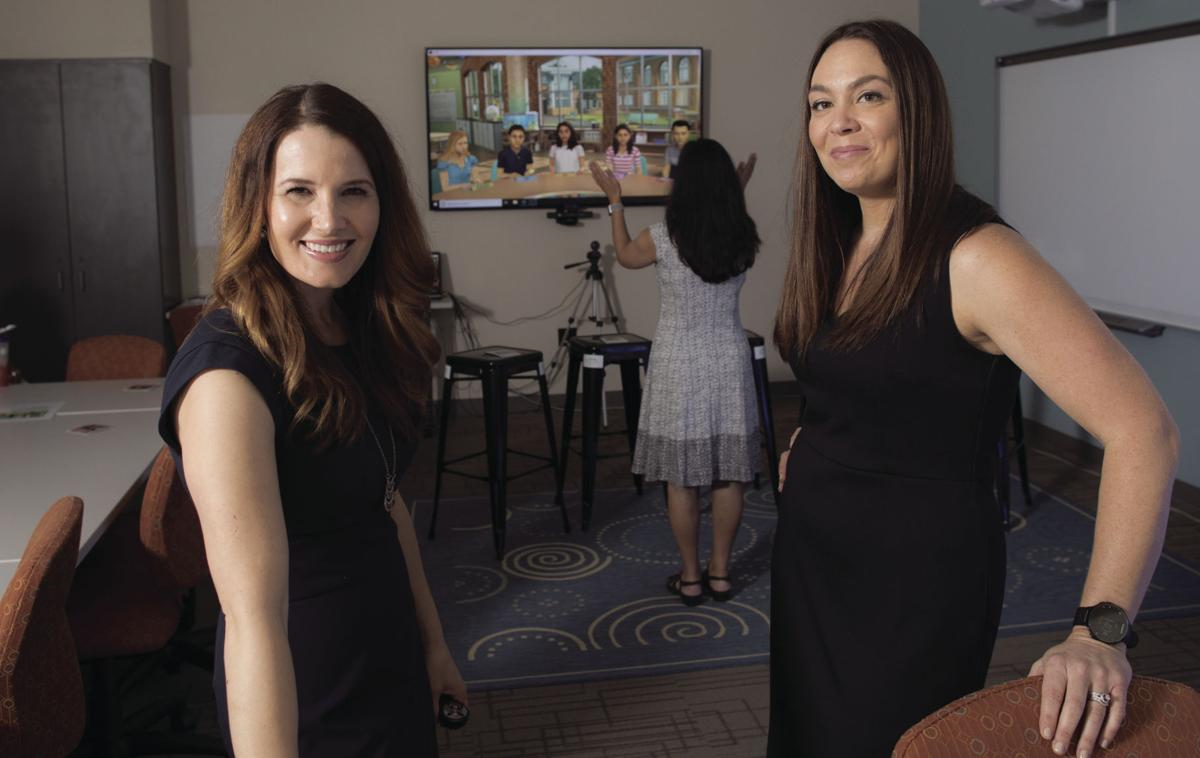
This article and photo originally appeared in Cobb Life Magazine and are reprinted with permission.
Teachers encounter all sorts of situations when they’re instructing students in the classroom, and the Bagwell College of Education at Kennesaw State University is taking an animated approach to preparing teacher candidates for scenarios they will experience as educators.
Bagwell has a new laboratory where KSU students and faculty utilize mixed-reality technology to interact with avatars of children and adults, simulating a variety of situations and challenges teachers can encounter. The student avatars each have their own unique personalities, and the scenarios have low, medium and high settings requiring varying levels of problem-solving.
“The lab’s capabilities are endless for providing purposeful practice for teacher candidates before they ever step foot in a classroom,” said Kate Zimmer, interim chair of the Department of Inclusive Education and an associate professor of special education.
03 Oct2019
By JTE Insider

Read the latest JTE Insider blog interview by the Journal of Teacher Education (JTE) editorial team member Lauren Snead. This blog is available to the public, and AACTE members have free access to the articles in the JTE online archives—just log in with your AACTE profile.
This interview features insights from the article “Rethinking Student Teacher Feedback: Using a Self-Assessment Resource With Student Teachers” by Lauren Oropeza Snead and H. Jerome Freiberg. The article was published in the March/April 2019 issue of the JTE.
Q1. What motivated you to pursue this particular research topic?
As a doctoral student in Dr. Jerome Freiberg’s graduate class, I was challenged to self-assess my own teaching by using student feedback. This was an area of growth I had not previously explored and it completely changed the way I looked at my teaching. As I briefly discuss in the article, I had spent many years as a K-12 teacher, where I focused on what administrators thought of me. Up until this point, my teaching evaluations dictated how I taught my class. I based any areas of growth or changes on what the administrators said about my classroom. Now that I look back, I cannot believe how blind I was to all of the potential feedback perspectives in classrooms. Using Dr. Freiberg’s self-assessment resource, the Person-Centered Learning Assessment (PCLA), I realized for the first time that the power for change started with my students. Accessing student feedback gave me a fresh perspective into areas of growth. It was an empowering experience. That experience spurred on my curiosity to dive further into the PCLA.
02 Oct2019
By Jerrica Thurman
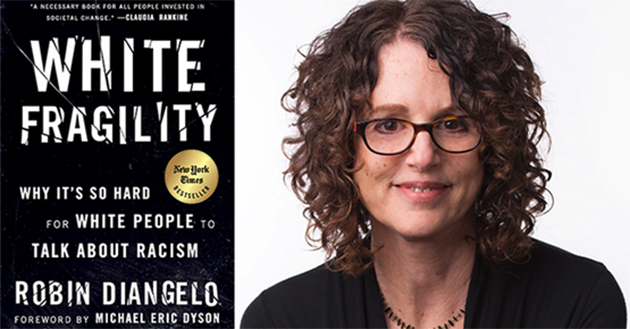
AACTE is pleased to announce renowned academic, lecturer, and author Robin DiAngelo will headline the 2020 Annual Meeting, February 28 – March 1 in Atlanta, GA. She will take center stage as the opening keynote speaker on Friday, February 28.
DiAngelo serves as the affiliate associate professor of education at the University of Washington, where she teaches courses in multicultural teaching, inter-group dialogue facilitation, cultural diversity and social justice, and anti-racist education. She is widely recognized for her research in critical discourse analysis and whiteness studies.
In 2011, DiAngelo coined the term “white fragility” in an academic article, which influenced the national dialogue on race. Her book, White Fragility: Why It’s So Hard For White People To Talk About Racism, was released in June 2018 and debuted on the New York Times Bestseller List.
Read more about DiAngelo and how you can join in “Disrupting Inequities: Educating for Change” during the Annual Meeting!
The October 30 early bird registration deadline is quickly approaching! Take advantage of discounted rates for the AACTE 72nd Annual Meeting by securing your spot today! Visit aacte.org for conference details, follow us on Twitter and Facebook, and join the conversation using #AACTE20.
Come experience the new AACTE Annual Meeting – One community. One purpose. One place.

Questions – Need Assistance?
Please contact us at events@aacte.org
02 Oct2019
By Linda Minor
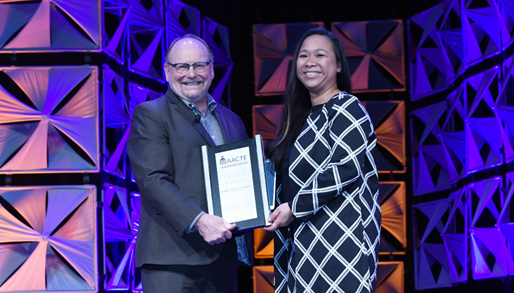
Have you thought about submitting and entry for an AACTE Award? Have you or a colleague completed work that you feel should be noticed and deserves to be recognized? The good news is that there is still time to nominate or submit an entry for the 2020 Best Practice and the 2020 Professional Achievement Awards, recognizing member institutions and individuals, respectively, for their significant contributions to the field of educator preparation:
Best Practice
- Best Practice Award for the Innovative Use of Technology
- Best Practice Award in Support of Global and International Perspectives
- Best Practice Award in Support of Multicultural Education and Diversity
Professional Achievement
- Margaret B. Lindsey Award for Distinguished Research in Teacher Education
- David G. Imig Award for Distinguished Achievement in Teacher Education
- Edward C. Pomeroy Award for Outstanding Contributions to Teacher Education
The deadline to submit your entry is Wednesday, October 9, 2019.
02 Oct2019
By Valerie Owens
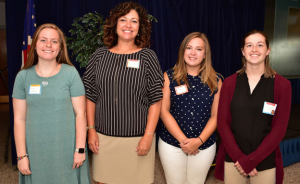 Shepherd University’s School of Education received a $40,635 grant from the West Virginia Department of Education to continue working with five Berkeley County Schools providing professional development and to start a pilot program in which a select group of Shepherd student teachers spend the entire school year in a Berkeley County elementary school.
Shepherd University’s School of Education received a $40,635 grant from the West Virginia Department of Education to continue working with five Berkeley County Schools providing professional development and to start a pilot program in which a select group of Shepherd student teachers spend the entire school year in a Berkeley County elementary school.
“The teacher candidate goes in from day one and works with the mentor teacher in co-planning, co-teaching, and co-assessing,” said Dori Hargrove, Shepherd’s elementary specialization coordinator. “By being involved from the first day, the teacher candidate gets a better understanding of all the decisions that go into planning. It helps the teacher candidate feel more prepared and helps the mentor teacher learn new strategies.”
Four Shepherd elementary education majors are participating in the pilot program—Kristin Williams, Charles Town; Susan Stambaugh, Martinsburg; Kayla Shultz, Falling Waters; and Alexis Shearer, Chambersburg, Pennsylvania. The typical length of time for student teaching is 14 weeks; however, the four are co-teaching in a school the entire year.
30 Sep2019
By Ward Cummings
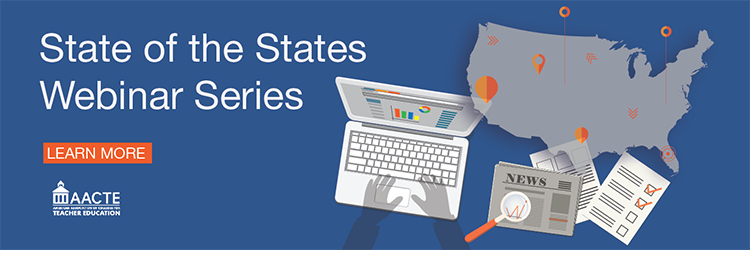
Most of the state legislatures around the country have adjourned for the year. During the session, legislators introduced more than one hundred thousand individual pieces of legislation, of which hundreds focused on the teaching profession and the preparation of teachers. In the September 2019 State of the States Legislative Roundup webinar, AACTE offered an overview of education-related bills introduced over the year.
Each month, these state-focused policy and legislation webinars will examine a particular theme; October’s theme is school safety. If you or your colleagues are doing specific work around school safety—including campus safety, social-emotional learning, integrating trauma-informed instruction into your curriculum, or other related work— we encourage you to submit a blog. Learn more about the submission guidelines.
We hope you view the recording of September’s webinar and stay tuned for a blog when October’s registration opens. This webinar series is designed to help AACTE members stay abreast of the actions of state legislatures around the country that impact the profession, and we encourage you to attend.
27 Sep2019
By Jane E. West
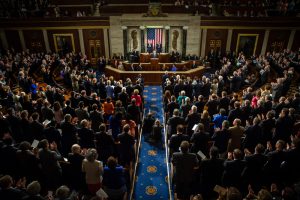
This blog post is written by AACTE consultant Jane West and is intended to provide update information. The views expressed in this post do not necessarily reflect the views of AACTE.
It’s been a breathtaking week in Washington as minute-to-minute developments unfold in the House’s decision to pursue impeachment of President Trump. Yet, both congressional bodies continue to move on their legislative agendas. The question becomes, how much oxygen will impeachment suck up and will there be any space left for anything else? And remember the Congress leaves town today for a two-week recess, to return with less than 30 legislative days scheduled before the end of the year! Of course, this could change.
27 Sep2019
By Ward Cummings
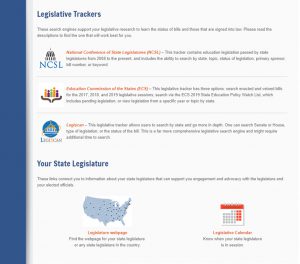
Would you like to learn more about the resources AACTE has pulled together to support its members in their state level legislative research? AACTE Government Relations Committee member Allen Clarkson will host a webinar describing the features of AACTE’s new state legislative resource page on Thursday, October 3, from 11am to Noon EDT.
Attend this webinar to learn how to use the three legislative search engines and other resources found on this new page to pursue your legislative research and advocacy goals. There will be time at the end of the webinar to get your questions answered. The webinar will be recorded and posted on the website as well.
Register now for the Introducing AACTE’s New Legislative Resource Webpage webinar.









 The U.S. Department of Education announced its new
The U.S. Department of Education announced its new 






 Shepherd University’s School of Education received a $40,635 grant from the West Virginia Department of Education to continue working with five Berkeley County Schools providing professional development and to start a pilot program in which a select group of Shepherd student teachers spend the entire school year in a Berkeley County elementary school.
Shepherd University’s School of Education received a $40,635 grant from the West Virginia Department of Education to continue working with five Berkeley County Schools providing professional development and to start a pilot program in which a select group of Shepherd student teachers spend the entire school year in a Berkeley County elementary school.

